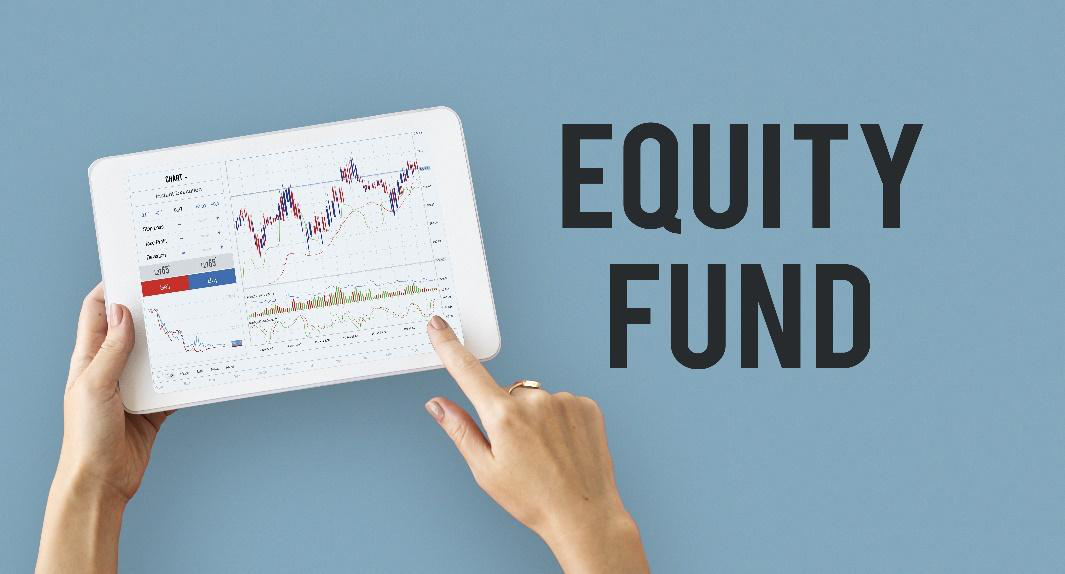Written by
Updated :
Reviewed by
Are you planning to invest your savings or hard-earned money to generate better returns and save ample for future and unforeseen circumstances? Equity funds are what you might be looking for. They are mutual fund schemes that invest their assets in stocks of different companies. Equity funds are great investment options. Wondering what is equity funds or how it can help you?
Here is an in-depth guide into what Equity Funds are, their benefits and who should invest in these schemes.
What are Equity Funds?
An equity fund is also known as a type of mutual fund scheme that invests in equity stocks and equity derivatives of companies. It is also popularly known as growth or stock funds, either active or passive. In an active fund, the fund manager scans the market, researches companies, examines performance, and looks for high performing stocks.
On the other hand, in a passive fund, the fund manager builds a portfolio that builds a popular market index. Equity funds, also known as equity fund schemes, invest their assets in the stock of different companies; these funds are a great investment option as they have the potential for long-term wealth creation.
Types of Equity Funds as Per SEBI
Now that you know what is equity funds, let’s move forward to know its types. As per SEBI (the securities and exchange board of India), the regulator of mutual funds in India, equity funds have been further categorized into ten categories. This initiative of SEBI has been made to help investors identify schemes that cater to their investment needs and risk appetite. Take a look at the type of equity funds.
● Large-cap funds: These types of equity funds are an open-ended equity scheme that majorly invests in large-cap stocks, and here, the investor should invest 80% of the total asset in equity.
● Mid-cap funds: The investor should invest 65% of total assets in equity and its related securities of mid-cap firms.
● Small-cap funds: These types of equity funds are an open-ended equity scheme where the investor should invest 65% of the total asset of equity and its related securities of small-cap firms.
● Multi-cap funds: It is an open-ended equity scheme that majorly invests across large-cap, mid-cap, and small-cap stocks.
● Large-cap and small-cap funds: The investor should invest 35% of total assets in the equity of large-cap firms and 35% of total assets in the equity of mid-cap funds.
● A dividend yield fund is also an open-ended equity fund where the investor should majorly invest 65% of total assets in equity.
● Value funds: This mutual fund follows a value investment strategy, where the investor should follow an investment strategy and invest 65% of total assets in equity funds.
● Contra fund: The investor should follow a contrarian investment strategy and invest 65% of total assets in equity.
● Focused fund: The investor should focus on the number of stocks and invest 65% of total assets in equity and related securities.
● ELSS: It is an open-ended equity-linked savings scheme with a statutory lock-in of 3 years and tax benefits.

Related Articles
- Benefits of ULIP Investment Plan
- Types of ULIPs
- How to Save Tax with ULIPs
- Maximize Returns With ULIPs
- Best Short Term Investments for Tax Saving
- What is Power of Compounding
- What is Investment
- Types of Investment in India
- 80C Investment Options
- Fixed Deposit Interest Rates
- Voluntary Provident Fund
- Difference Between Saving And Investing
- What is Fixed Deposit
- What is Term Deposit
- What is Recurring Deposit
- Fixed Deposit vs Recurring Deposit
- What is KYC
- Max Life Guranteed Income Plan
- What is ULIP
Who Should Invest in Equity Funds?
Every investor thinks of gaining a good return on investment, and equity funds are popular among investors because of their potential of generating high returns. Investors looking to invest for more than five years should consider investing in equity funds. Equity funds are not very suitable for a relatively short-term period. However, if an investor has a long-term goal, investing in equity funds is always desirable.
Things to Consider Before Choosing Equity Funds
If you are willing to invest in equity funds, here are some factors to consider that will help you choose suitable funds.
1. Size of the fund- the size of the fund is the total assets under management (AuM). There is no definition regarding the ideal size of funds; if it is too large or too low, the fund's performance can get affected.
2. Expense ratio- as an investor, you will have to bear the fund management costs charged as an expense ratio.
3. Risk reward ratio- This is the potential return investors can earn for every rupee they have risked and invested in the market. It further helps the investors compare the returns of different investments and ensures that the RRR of the fund is in sync with the risk tolerance levels.
4. Tax benefits- ELSS or equity-linked savings schemes are equity funds that offer tax benefits under Section 80C of the Income Tax Act.
5. Types of equity- you can also consider types of equity funds before investing in them. Choose from the following equity funds per your needs; sectoral needs, thematic funds, focused equity funds, etc.
3 Common Risks of Debt Fund Investments
No investment is completely without risk and the same is true for Debt Funds. This is the case even though debt funds are less volatile as compared equity investments, especially in the short term. Below are the key risks you need to consider before making debt fund investments:
Interest Rate Risk
Since Debt Funds primarily invest in bonds and other fixed-return instruments, they offer a fixed rate of return in the form of coupon rate. So, changes in market rates like repo and reverse-repo can impact the returns offered by debt funds. This is the basis of interest rate risk in the case of Debt Funds.
As a rule of thumb, when market interest rates increase, bond prices decrease and when market interest rates decrease, bond prices increase. An increase in bond prices increases the return from debt funds, while decrease in bond prices leads to a decline in debt fund returns. The interest rate risk of a debt fund is measured using modified duration of the scheme. Higher modified duration means higher risk, while lower modified duration means lower risk to the investor.

Tax Rules for Investing in Equity Funds
Investors generally do not think about tax on mutual funds when making investment decisions. Two types of taxes are levied on equity funds depending on the period.
● Long-term capital gain tax (LTCG)- Equity funds held for more than a year are termed long-term capital gain tax. The current LTCG tax is 10%.
● Short-term capital gain tax(STCG)- Equity funds held for less than a year are termed short-term capital gain tax, and the revised STCG tax is 15%.
Common Risks of Equity Fund Investment
Equity funds are, to this day, seen as a risky investment, which is why many people choose not to invest in them throughout their lives. However, every investment involves some risk, and many factors make an investment more or less risky. Look at the common risks involved in equity fund investments.
● Risk of price- Like other markets, equity markets can be very unpredictable and volatile in the short run of things; prices can fluctuate up and down, affecting the mutual fund NAV. So, invest carefully and evaluate the risk.
● Risk of liquidity- This risk comes up when you find it impossible to sell stock at a price you want. Liquidity risk arises when dealing with a certain kind of stock or security.
● Macroeconomic risk- This kind of risk is caused due to a multitude of factors: corporate earnings of the company or stock you have invested in, inflation, interest rates, or growth.
Frequently Asked Questions (FAQs)
1. Who should invest in equity mutual funds?
Your investment in equity mutual funds must sync with the investment horizon, risk profile, and other objectives. For example, if an individual has long-term goals, it is advised to invest in equity funds.
2. In what categories are equity funds divided?
Equity funds are divided into 2 key categories – active and passive. Actively managed equity schemes requires the fund manager to select investments based on research and recommendations of the fund management team. On the other hand, passively managed equity mutual funds typically features an investment portfolio that replicates an entire index like the Nifty 50 or Nifty 100. Such passively managed equity schemes are also called Index Funds.
3. What are the subcategories of equity funds based on investment objectives?
The subcategories of equity funds based on investment objectives are small-cap equity funds, large-cap equity funds, mid-cap, large and mid-cap funds, and multi-cap funds.
4. Are equity funds a good investment option?
They are a good investment option for investors who are seeking higher market linked returns than traditional fixed-return instruments.
5. Who should invest in equity mutual funds?
Investors looking to generate long-term capital can invest in equity mutual funds. The choice of the scheme should depend on the investor's risk appetite, investment horizon, and objectives.
Sources:
https://economictimes.indiatimes.com/mf/analysis/different-types-of-equity-funds/articleshow/88966082.cms?from=mdr
https://www.mutualfundssahihai.com/en/what-are-equity-funds
https://www.amfiindia.com/investor-corner/knowledge-center/equity-funds.html
https://www.dbs.com/digibank/in/articles/invest/what-is-equity-fund
https://groww.in/blog/things-to-know-before-investing-in-equity-funds
https://www.edelweiss.in/investology/introduction-to-mutual-funds-f7d345/how-are-equity--debt-mutual-funds-taxed-556e16
https://www.zestmoney.in/blog/risks-involved-in-equity-mutual-funds
https://www.mutualfundssahihai.com/en/what-are-equity-funds
https://www.rankmf.com/who-should-invest-and-why-should-i-Invest-in-equity-mutual-funds
ARN NO: Jan23/Bg/1B
Disclaimer:
The investment risk in Investment portfolio is borne by the policyholder.

